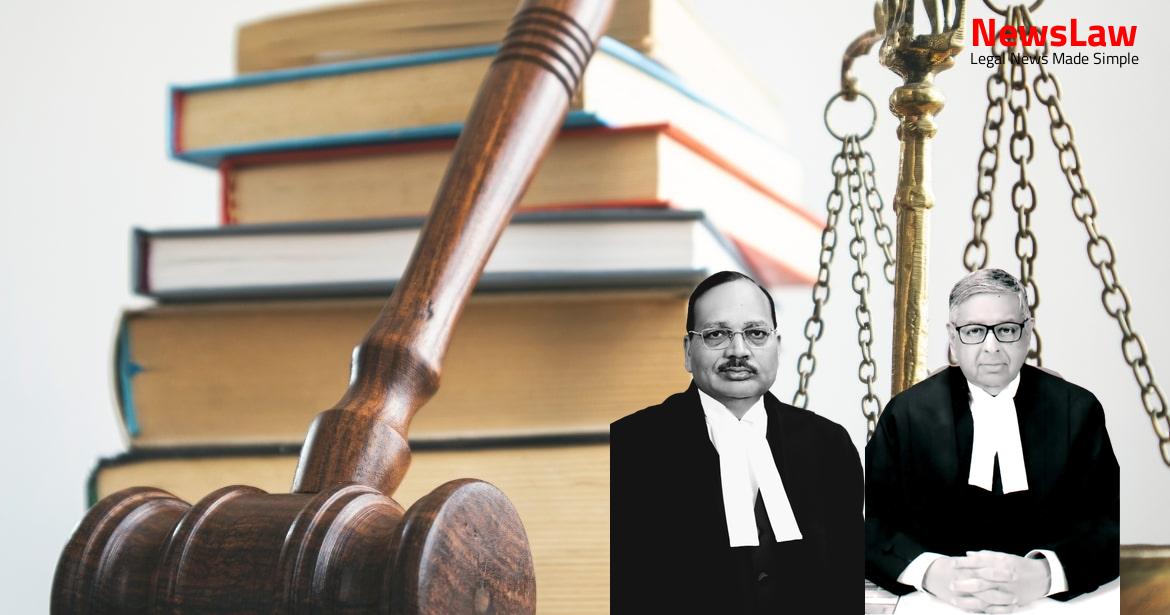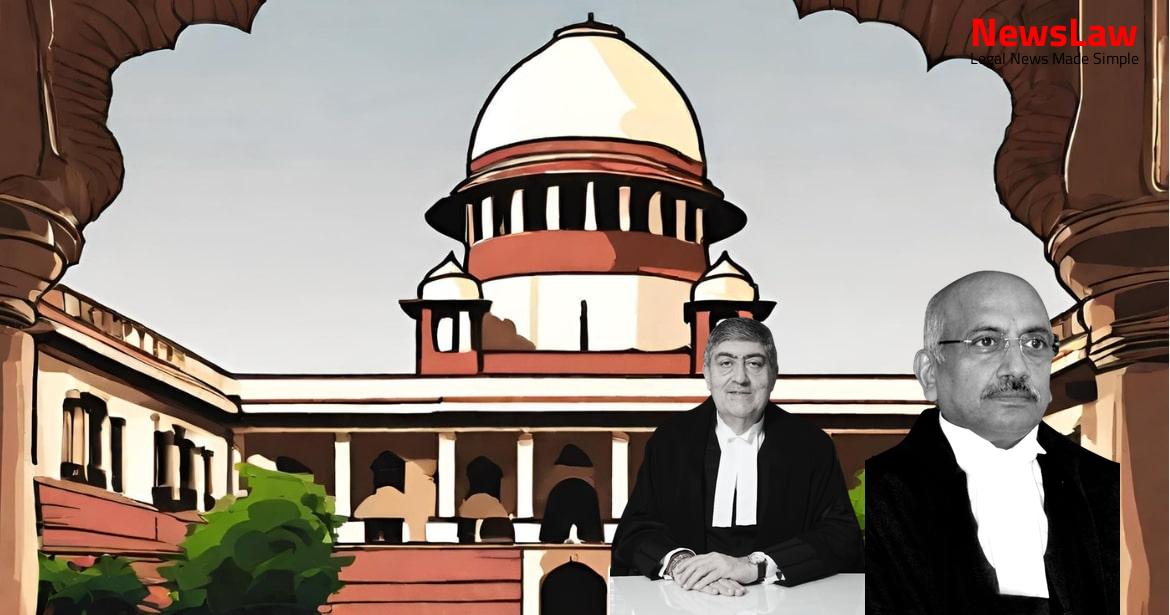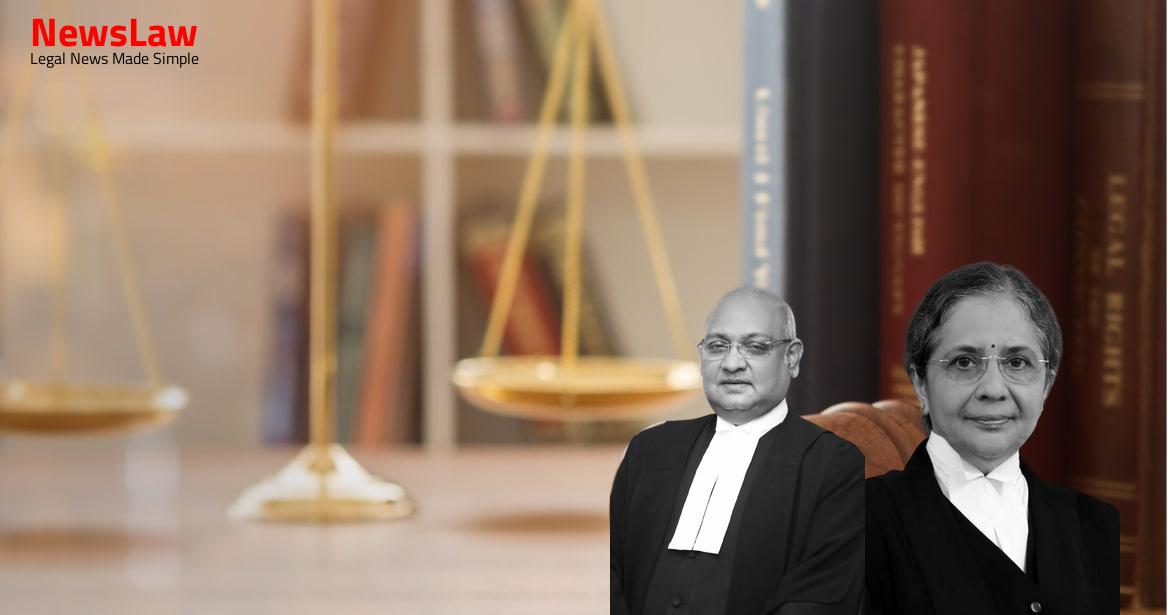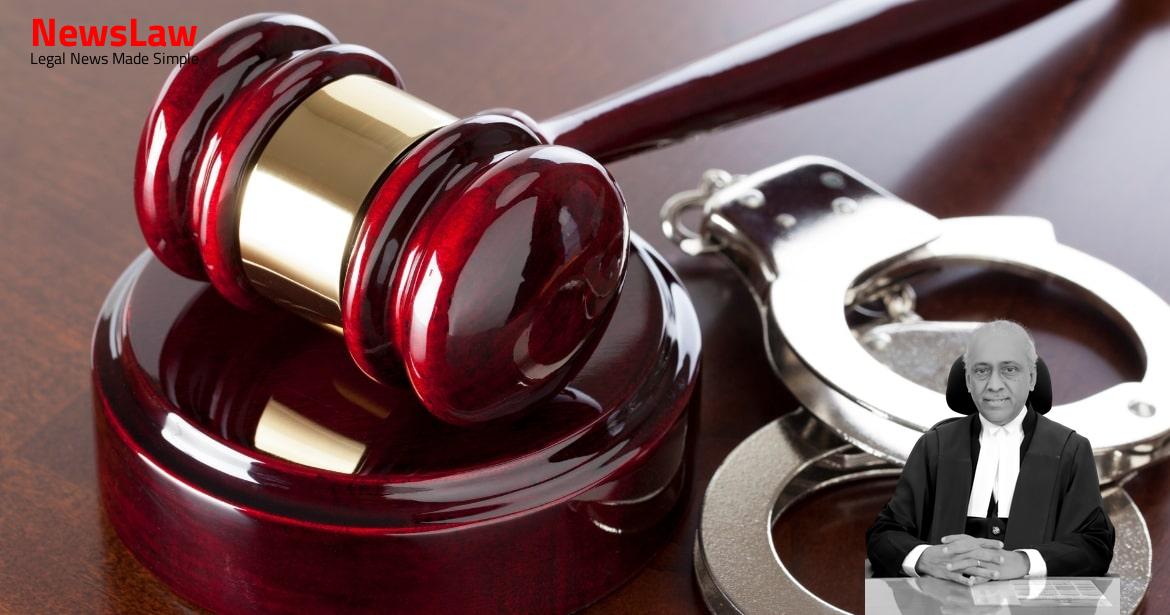Explore the detailed legal analysis carried out by the court in a recent motor accident compensation case, shedding light on fundamental principles of fairness and equity. The court’s judgment delves into the nuances of income computation, future prospects, and deductions for personal expenses, emphasizing the importance of preserving the standard of living for the deceased’s family. Stay tuned to understand the legal intricacies at play in this significant case.
Facts
- Vinod and Poonam were hit at an intersection in Delhi by a Santro Car on 12.04.2014.
- An FIR was registered against the driver under Sections 279 and 304 of the IPC.
- Statement of an independent eyewitness, Constable Vishnu Dutt, confirmed rash driving and negligence by the car-driver.
- A claim petition was filed under Section 166 of the MV Act by the two toddler-daughters and septuagenarian-parents of the deceased.
- Contested by the driver and owner, alleging negligence on part of the deceased themselves.
- Two witnesses were examined by the appellant-claimants.
- Rs 2.50 lakhs given as compensation for each deceased for loss of love and affection, estate, and funeral charges.
- Addition of future prospects and non-deduction of personal expenses for Poonam prayed to be reversed.
- Anomaly between gratuitous increase of income for Vinod and Poonam, and usage of unskilled minimum wage for Vinod noted.
- Age-multiplier of 17 adopted in compensation calculation.
- Total compensation reduced to Rs 22 lakhs due to chargesheet against driver and failure to testify.
- Ages of Poonam and Vinod determined as 26 and 29 years respectively.
- Re-computation of compensation sought following National Insurance Co Ltd v. Pranay Sethi decision on future prospects.
- Tribunal awarded Rs 40.71 lakhs in total for both deceased, later reduced by High Court adopting minimum wage for unskilled workers in Haryana.
- Future prospects denied to both deceased with 1/3 of Poonam’s income deducted for personal expenses.
- 25% additional income added to Poonam due to her contribution to household.
- Compensation sought to be halved for contributory negligence.
Also Read: Electoral Malpractices in Mayor Election
Arguments
- Learned Counsel for the respondent-insurer is against any increase in compensation, including future prospects.
- Claiming that the High Court’s decision was a consent order, it is argued that the counsel for the appellants agreed to a lower computation for loss of dependency.
- The deduction for personal expenses has been considered by the court.
Also Read: Balancing Power and Transparency: Electoral Bonds Struck Down, Disclosure Mandated
Analysis
- Preserving the existing standard of living of a deceased’s family is a fundamental goal of motor accident compensation law.
- Established income is income minus the tax component.
- Future prospects to the tune of 40% must be paid for the deceased and the foetus in the womb at the time of the accident.
- Changes post the accident should not affect pending legal proceedings.
- Claims and legal liabilities crystallize at the time of the accident.
- An addition of 25% for the deceased aged 40-50 and 10% for those aged 50-60 is necessary in computing income.
- Minimum wage at the time of the accident should be applied in computing income.
- An addition of 40% of established income should be warranted for the deceased below 40 years if self-employed or on a fixed salary.
- Personal expenses deduction should be 1/4 for all family members dependent on the deceased.
- Advocates cannot waive legal rights or enter into arrangements contrary to law.
- Compensation should be just, reasonable, fair, and guided by principles of fairness, equity, and good conscience.
- The deceased had septuagenarian parents and two toddler daughters requiring exceptional care and expenditure.
- The argument that no future prospects should be allowed for those with notional income is legally incorrect and without merit, given the constant inflation-induced increase in wages.
- Quoting the observations of the court in Hem Raj v. Oriental Insurance Co. Ltd., it was established that there should be no distinction in cases where there is positive evidence of income.
- The case law cited puts to rest any argument against awarding future prospects to the deceased in the present case.
- Minimum income is determined on guesswork in the facts and circumstances of a case.
- In the present case, an addition of 40% to the income assessed by the Tribunal is required.
- No arguments presented on other heads of compensation like funeral charges, loss of estate, love, and affection.
- No issues found with the High Court’s adoption of 17 as the age-multiplier, 9% interest award, calculation of notional income for Poonam, or the division of total compensation in a ratio of 1:2:2 between the grandfather and the two girls.
Also Read: Recall of Resolution Plan Approval: Legal Analysis
Decision
- Enhanced compensation to be paid within two months with interest of 9% p.a. from the date of filing of the Detailed Accident Report
- The total motor accident compensation awarded by the High Court is increased by Rs 11.20 lakhs to reach a new total of Rs 33.20 lakhs
- Appeals allowed in part as per the reasons stated
Case Title: KIRTI Vs. ORIENTAL INSURANCE COMPANY LIMITED (2021 INSC 6)
Case Number: C.A. No.-000019-000020 / 2021



